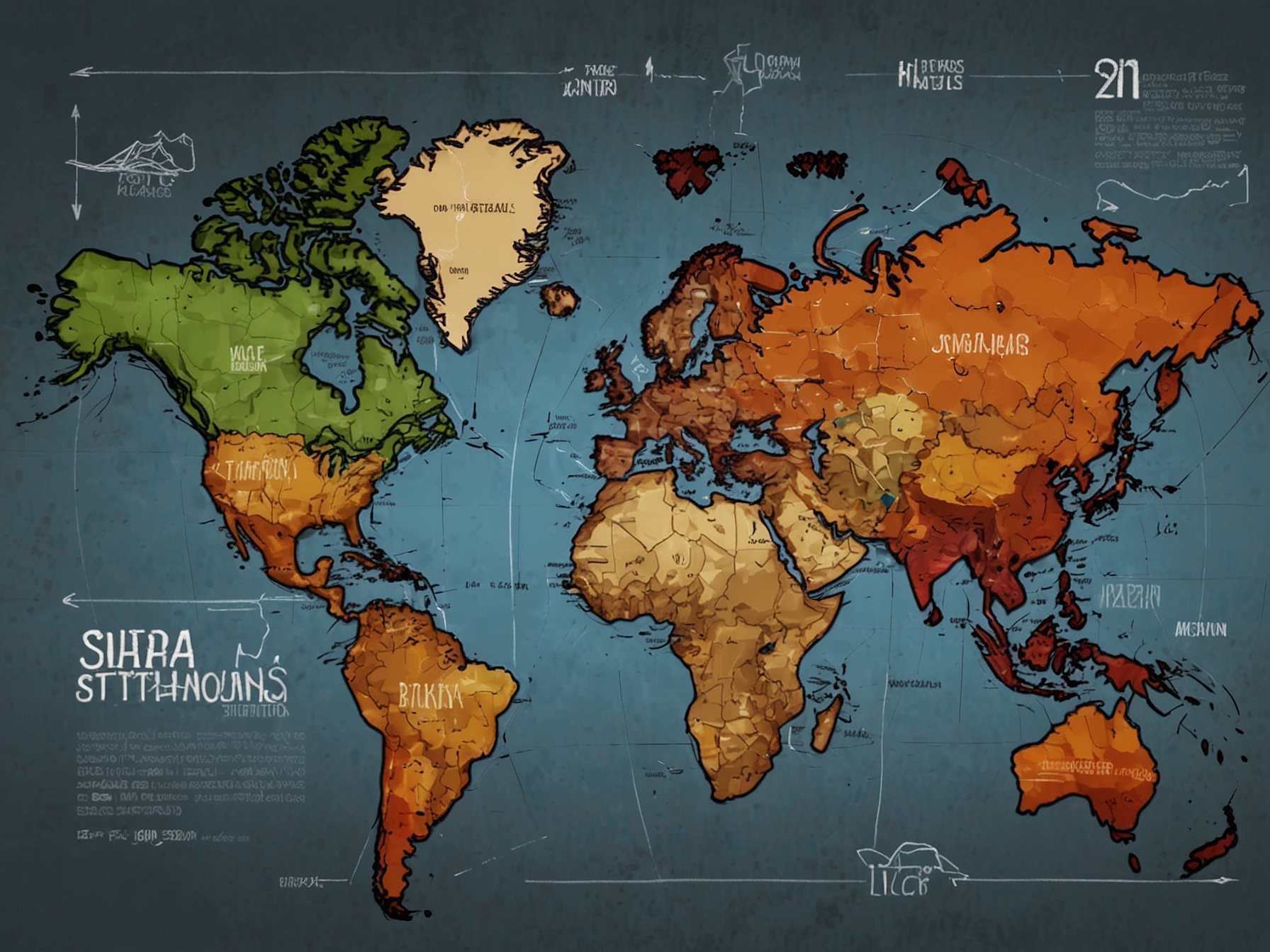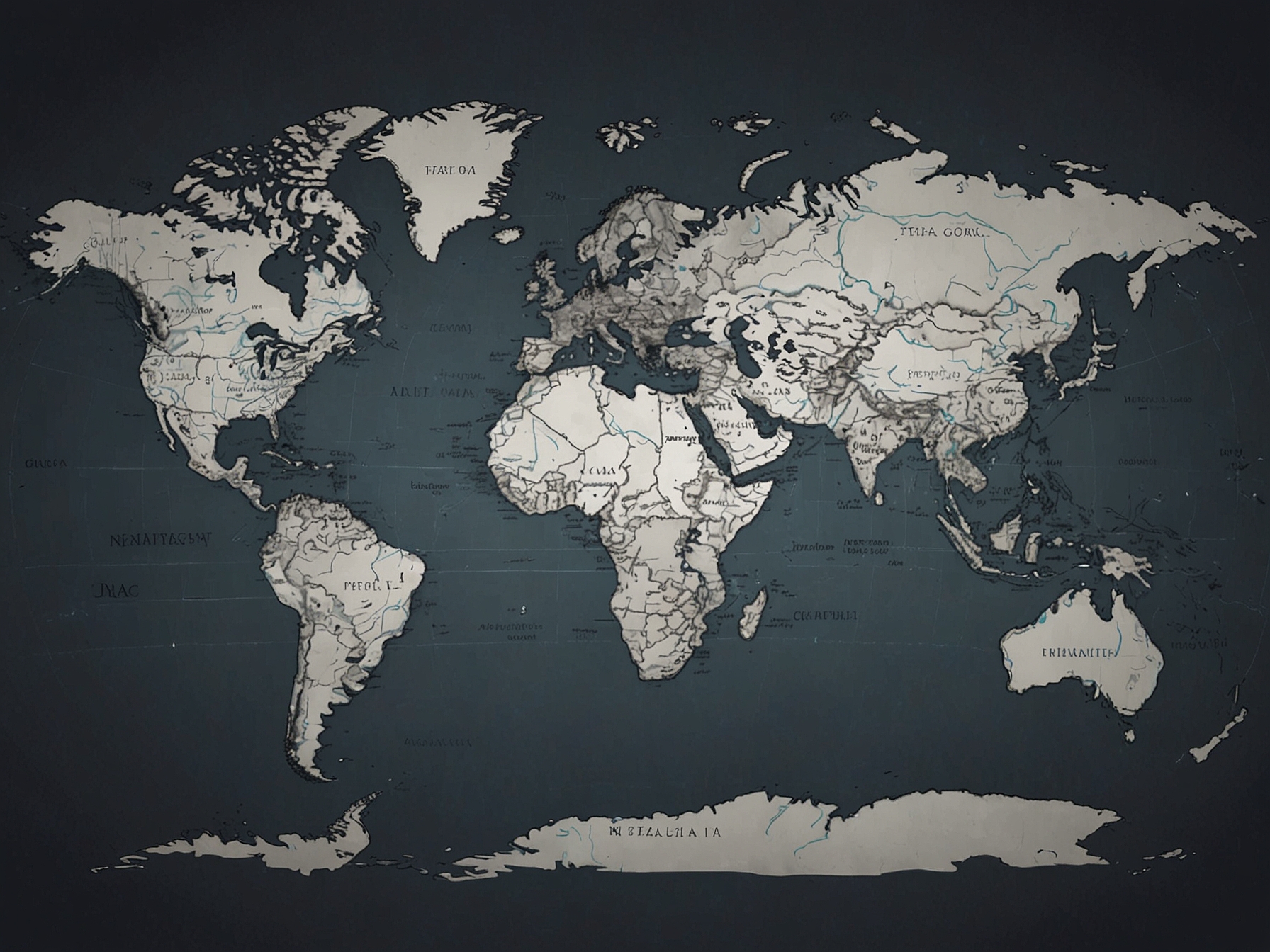Economic sanctions have long been employed as tools of foreign policy, aimed at exerting pressure on nations to induce political or economic change. Recent research conducted by economists from Würzburg, Kiel, Berlin, and Bielefeld sheds light on the multifaceted effects of these sanctions on the targeted countries, the sanctioning states, and the global economic landscape. Published in the journal Economic Policy, this study offers a comprehensive analysis of the real costs and potential strategic benefits of economic sanctions.

© FNEWS.AI – Images created and owned by Fnews.AI, any use beyond the permitted scope requires written consent from Fnews.AI
Sanctions impact the economies of the countries they target in numerous ways, often leading to severe economic distress. For instance, sanctions imposed on Russia and Iran have significantly disrupted their trade, financial systems, and overall economic stability. These measures typically restrict access to international markets, limit imports and exports, and curtail foreign investment, resulting in economic contractions. In Russia’s case, sanctions following geopolitical tensions have exacerbated inflation and led to a depreciation of the ruble, affecting household incomes and business operations. Similarly, Iran has faced persistent economic challenges due to restrictions on its oil exports, which form a major part of its national revenue. This has caused a decline in living standards, increased unemployment, and heightened social unrest.
Economists note that the effects of sanctions are not confined to the targeted nations alone. Sanctioning states also face economic repercussions. Businesses within these countries might lose access to important markets, which can lead to revenue losses and reduced economic growth prospects. For example, European countries sanctioning Russia have found their energy supplies jeopardized, prompting a search for alternative sources that often come at higher costs. Additionally, global trade networks are disrupted, affecting supply chains and leading to price volatility in various sectors. Such disruptions can have ripple effects across the global economy, underlining the interconnectedness of modern economic systems.

© FNEWS.AI – Images created and owned by Fnews.AI, any use beyond the permitted scope requires written consent from Fnews.AI
A crucial aspect of the study revolves around assessing whether there is an optimal coalition of sanctioning partners that can maximize the effectiveness while minimizing the adverse side impacts. Economists argue that a united front among key international players can significantly enhance the potency of sanctions. When major economic powers coordinate their efforts, the targeted country finds it harder to circumvent imposed restrictions. Historical data and case studies show that multilateral sanctions tend to be more successful in bringing about the desired political or economic changes. However, achieving and maintaining such coalitions can be challenging due to diverse political agendas, economic interests, and the dynamic nature of international relations.
The study also delves into the unintended consequences of sanctions. While the aim is to penalize governmental structures and key economic sectors, ordinary citizens often bear the brunt of these measures. Sanctions can lead to shortages of essential goods, reduced healthcare and education services, and overall decreased quality of life for the general population. Such humanitarian impacts can, in turn, generate negative perceptions of the sanctioning countries, potentially fueling anti-Western sentiments and undermining diplomatic efforts. Policymakers thus face the daunting task of designing sanctions that minimize collateral damage while effectively pressuring the targeted regimes.
In light of these findings, economists from Würzburg, Kiel, Berlin, and Bielefeld recommend a nuanced approach to implementing sanctions. They advocate for targeted measures that specifically disrupt the financial and operational capabilities of political elites and key economic sectors, rather than broad-based sanctions that affect the general populace. This requires precise intelligence and coordination among sanctioning nations to identify and block key assets and networks without causing widespread economic damage. The study emphasizes the importance of continuous evaluation and adjustment of sanctions to respond to changing circumstances and ensure the desired outcomes are achieved.
The research also highlights the importance of complementary diplomatic efforts alongside sanctions. While economic pressure can play a significant role in compelling change, it must be part of a larger strategy that includes diplomatic negotiations and incentives for compliance. Sanctions alone are unlikely to achieve long-term success without a clearly defined pathway to resolution that addresses the underlying political or economic issues. Thus, the integration of economic, political, and diplomatic tools is crucial for the overall effectiveness of international sanctions.
In conclusion, the study by economists from Würzburg, Kiel, Berlin, and Bielefeld provides valuable insights into the complex dynamics of economic sanctions. While they serve as powerful instruments for exerting international pressure, their impact is far-reaching and multifaceted, affecting not only the targeted nations but also the global economic environment. Careful consideration of the design and implementation of sanctions, along with coordinated international efforts and complementary diplomatic strategies, is essential to maximize their effectiveness and minimize unintended consequences. As global geopolitical challenges evolve, so too must the strategies for employing economic sanctions, ensuring they remain a relevant and effective tool in the arsenal of international diplomacy.
Was this content helpful to you?





